Одной из важных исследовательских задач SEO-аналитики является сужение выдачи на определенную группу документов или сайтов.
Попробуем задать запрос поиск, ограничив выдачу только двумя документами – главными страницами сайта Яндекса и русскоязычного сайта Google.
Для сужения поиска на заданные URL воспользуемся документированным оператором url:, относящемуся к группе «Документные операторы», который прекрасно справляется со своей задачей в случае поиска по одному документу:
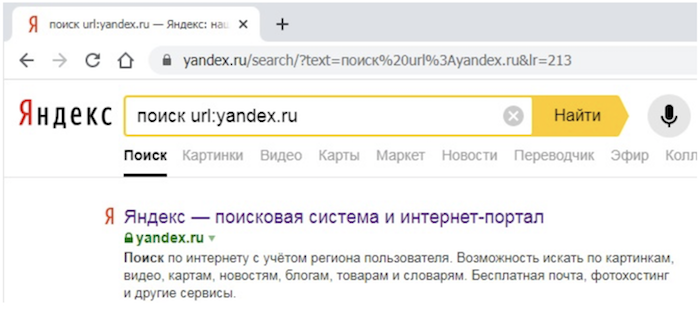
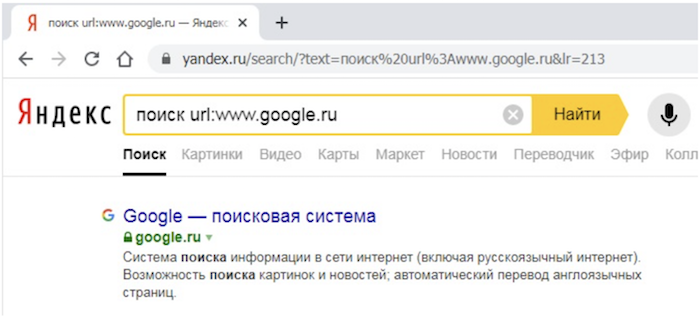
Однако его применение «в лоб» в случае с двумя документами задачу не решает:

В этом случае решить задачу помогает небольшой трюк – добавление между операторами url: документированного оператора | (поиск документов, в которых присутствует любое слово из запроса).
Согласно официальной документации этот оператор относится к группе «Морфология и поисковый контекст» и его следует применять к ключевым словам. Однако, как показывает практика, он прекрасно справляется с задачей, будучи примененным и к документным операторам:
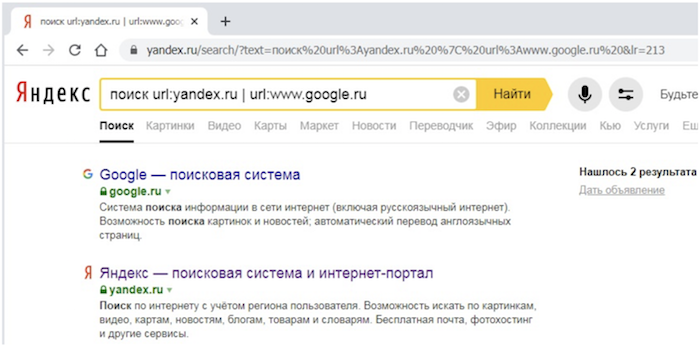
Убедимся, что оператор | применяется именно к операторам url: т.е. имеет логику
поиск (url:yandex.ru | url:www.google.ru),
а не делит запрос на две части, имея логику
(поиск url:yandex.ru) | (url:www.google.ru).
Для этого возьмем запрос, по которому ищется главная страница Яндекса, но не ищется главная страница Google:
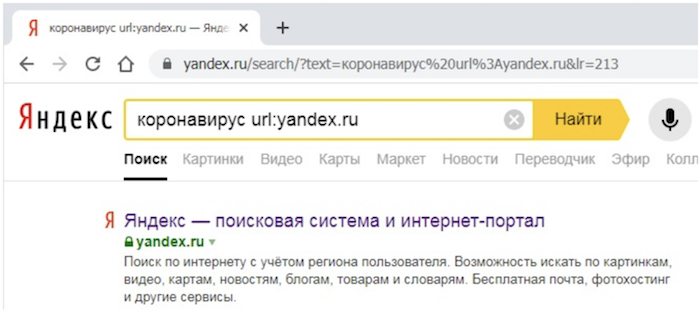
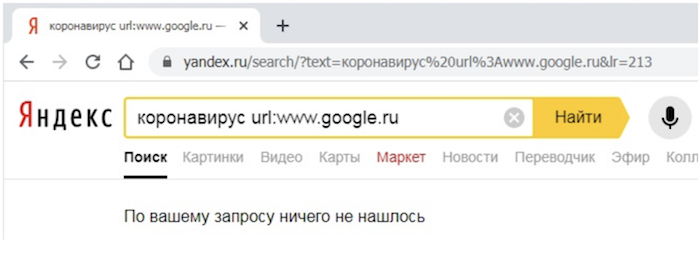
Если оператор | работает как нам надо, то мы в результатах поиска увидим только один Яндекс, если нет – то оба документа. Убеждаемся, что имеет место первый вариант:
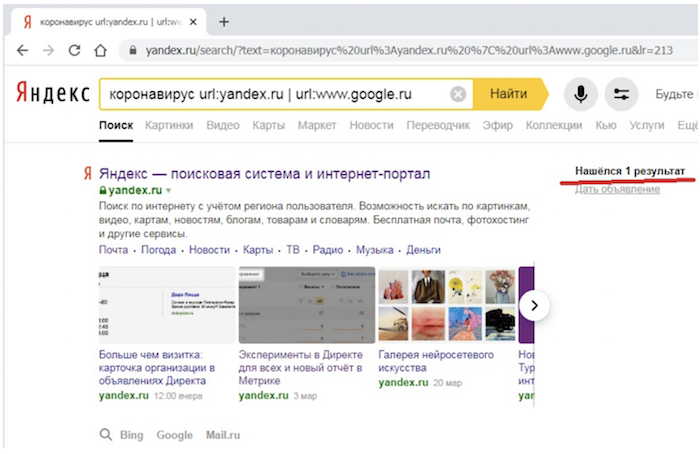
Также все прекрасно работает и в случае с тремя документами:
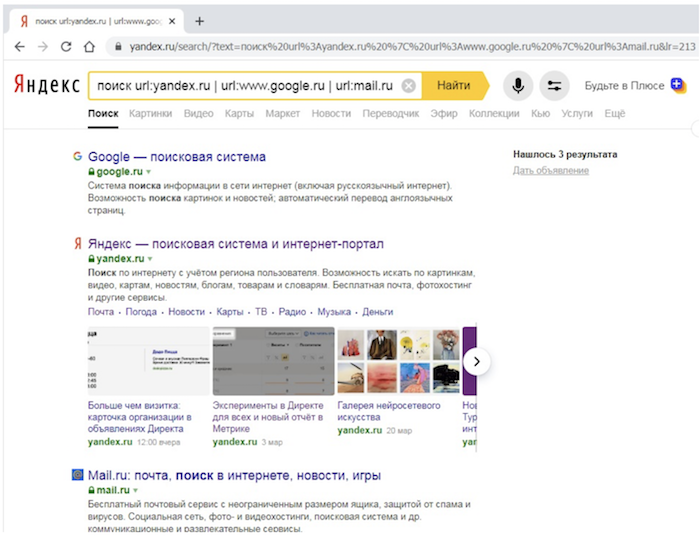
Проверка на логику работы в случае трех документов также дает ожидаемый результат:
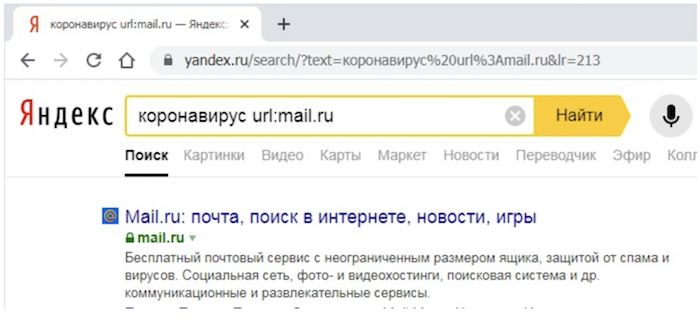
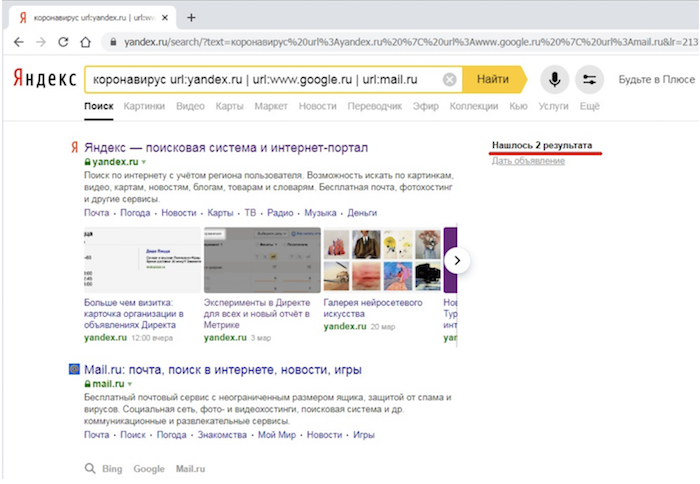
Таким же образом можно организовывать поиск сужением на несколько сайтов, используя вместо оператора url: оператор site:
Также исследовательские задачи SEO-аналитики могут требовать исключения определенных документов или сайтов из поисковой выдачи по запросу.
Для наглядности возьмем запрос, по которому в поисковой выдаче находится всего три сайта:
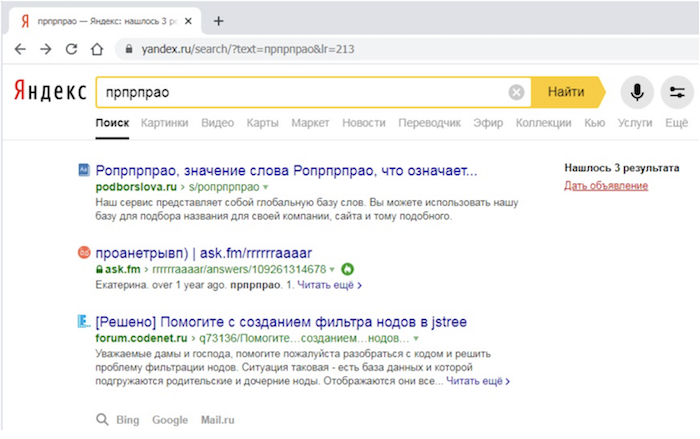
В текущем официальном языке запросов Яндекса есть документированный оператор отрицания: – («минус»). Однако он работает только со словами и неприменим для документных операторов. В случае применения его с документным оператором, он попросту игнорируется, и вместо удаления документа или сайта из выдачи мы получаем поиск по этому документу или сайту:
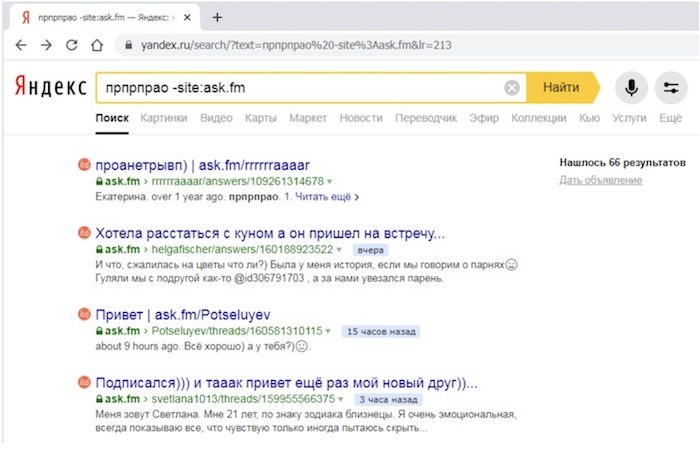
К текущему моменту официальный язык запросов Яндекса сжался буквально до нескольких документированных операторов – 8 документных и 6 морфологии и поискового контекста. Хотя ранее Яндекс мог похвастаться весьма обширным языком запросов, позволяющим решать разнообразнейшие поисковые задачи.
Однако некоторые операторы, бывшие когда-то документированными, а сейчас исчезнувшие из официального списка, продолжают работать и помогать решать задачи, с которыми только лишь с помощью документированных операторов справиться не получается.
И в данном случае нам приходит на помощь бывший некогда документированным оператор отрицания ~~ («двойная тильда»)
Он прекрасно справляется в поставленной задачей, очищая выдачу как от заданного сайта в связке c оператором site:
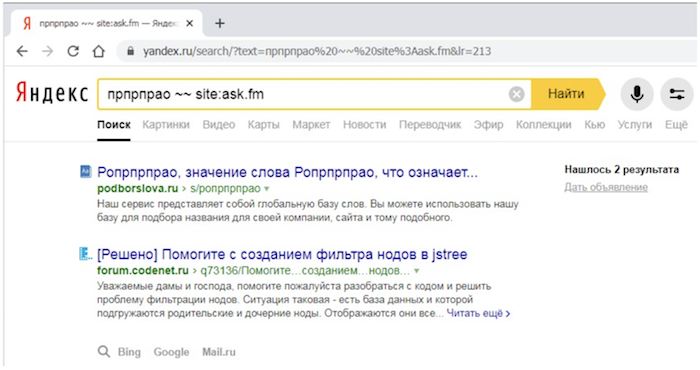
Так и от заданного документа в связке с оператором url:
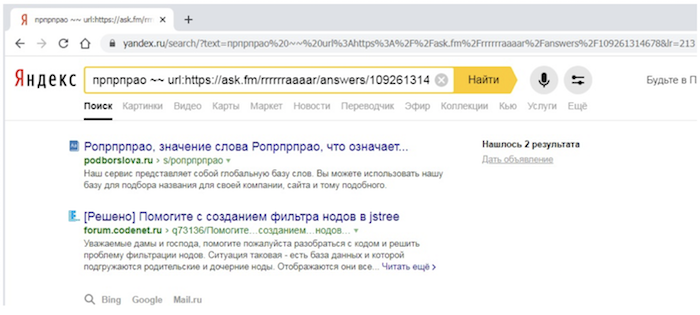
Причем можно исключать из выдачи несколько сайтов или документов, применяя оператор последовательно к каждому:
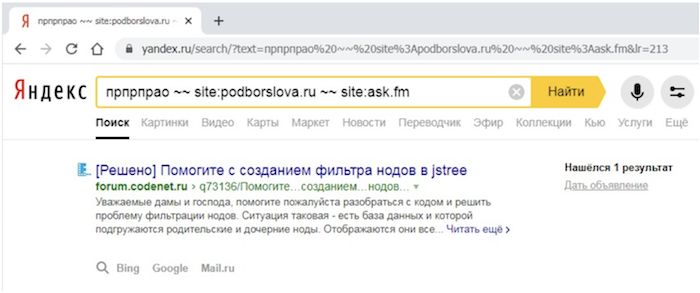
Либо можно сгруппировать исключаемые сайты иди документы, используя уже упоминавшийся документированный оператор | в связке с еще одним оператором, бывшим некогда документированным, но потом исчезнувшим из языка запросов – оператором группировки () («скобки»):
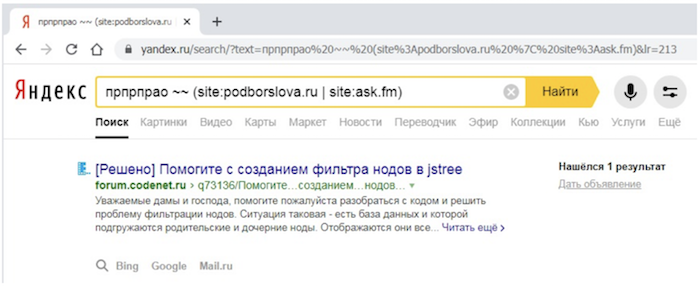
Без оператора группировки оператор отрицания будет применяться только к одному сайту или документу, т.е. в данном случае автоматической группировки не происходит:

Любопытно, что в других случаях оператор группировки может не работать. Например, нам не удастся с его помощью изменить логику учета операторов в примере, который рассматривался в первом случае. После применения оператора группировки главная страница сайта Google по-прежнему не находится:
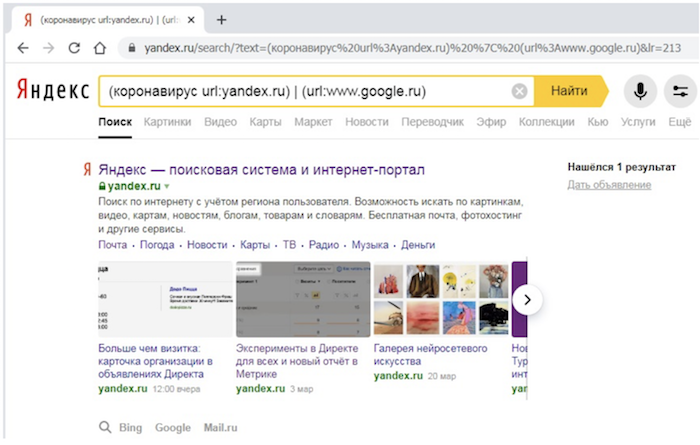
Так что применять недокументированный оператор группировки в общем случае следует с осторожностью.







